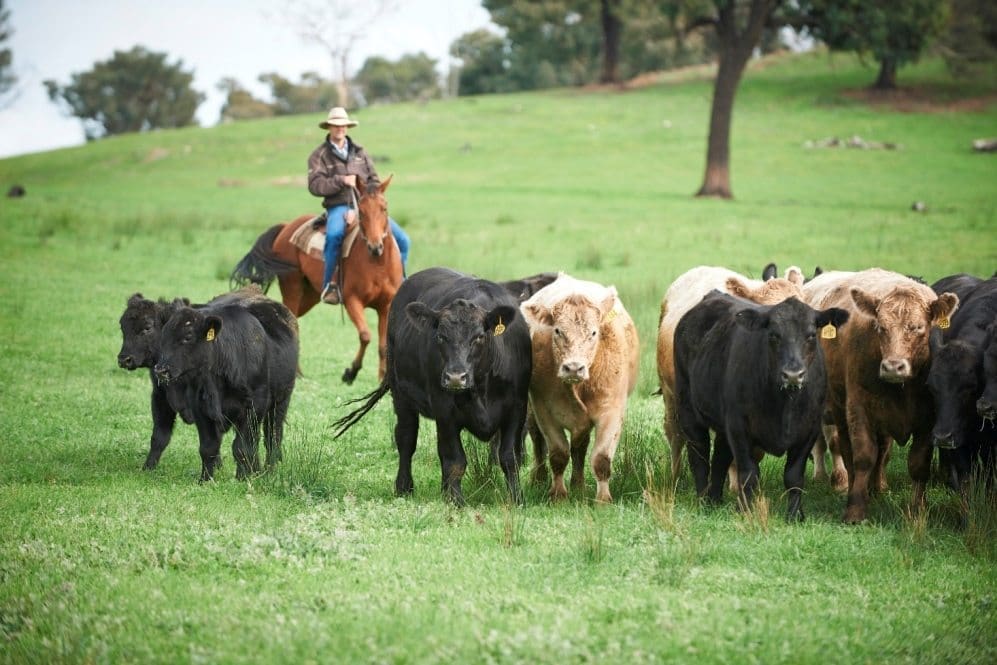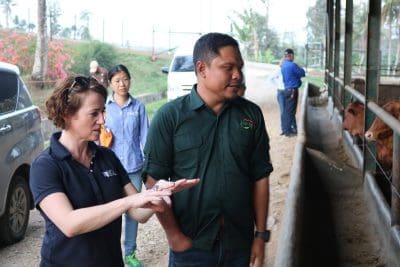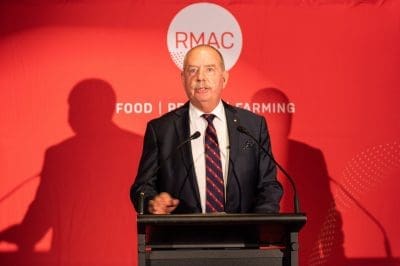MEDIA reports suggest a new global climate report to be released next week will continue the narrative that consumers should eat less meat to save the planet, despite continued evidence demonstrating cattle production can be carbon neutral.
French news agency AFP reported earlier this week that a leaked 400-page report due to be formally released by the Intergovernmental Panel on Climate Change (IPCC) on Monday will recommend a shift in the global diet away from meat to limit global temperature rises to 1.5 degrees Celcius, as well as an accelerated withdrawal from coal.
The looming report has generated headlines suggesting its contents will be ‘hard hitting’ and ‘wildly alarming’, with one of the report’s 86 authors, Henri Waisman, telling AFP that never in the history of the IPCC has there been a report “that is so politically charged”.
A report in The Australian said the IPCC has “high confidence” levels of greenhouse gas emissions will surpass the 1.5C threshold by 2040. The IPCC has stated global carbon dioxide emissions should peak no later than 2020 and the global economy must become “carbon-neutral” by 2050.
For that to be achieved the report is said to recommend a range of pathways for policy makers around the globe to follow to reduce greenhouse gas emissions.
Among these are recommendations to drive major changes in consumption habits, including eating less meat, while also undertaking large-scale reforestation.
Misleading to say cattle and carbon neutrality not compatible
Australian red meat industry leaders are awaiting the release of full details of the report next week, but based on what has been reported in the media so far, have warned that it is highly misleading to suggest red meat production must be removed to achieve a carbon neutral future.
Cattle Council of Australia CEO Margo Andrae said Australia’s beef industry was already proactively demonstrating that red meat production can be carbon neutral.
One year ago the industry launched a plan targeting carbon neutrality by 2030.
“It is misleading to say ‘mitigate climate change, or produce beef’,” Ms Andrae said.
‘we’re showing how grass-fed livestock systems can play a positive role in terms of our national carbon footprint, vegetation management and environmental stewardship’
“Not only can we do both, we’re showing how grass-fed livestock systems can play a positive role in terms of our national carbon footprint, vegetation management and environmental stewardship.
“Australia’s cattle industry is a world leader in terms of sustainable beef production.”
Ms Andrae said her recent supply chain tour to Indonesia with MLA also showed Australia “does not exist in isolation” in terms meeting global red meat demand sustainably.
“Indonesians are hungry for beef and it is Australia’s interests to collaborate with our Indonesian partners to build sustainable beef supply chains, whether that involves fattening imported Australian cattle using local feedstuffs or helping to build Indonesia’s breeding herd in environmentally sustainable production systems.”
Ms Andrae said she and Cattle Council president Howard Smith had just returned from discussions with representatives from other major beef producing countries at the International Beef Alliance conference in Canada.
Comprising cattle industry organisations from Australia, Brazil, Canada, Mexico, New Zealand, the US and Paraguay, representing over 60 per cent of the world’s traded beef, Ms Andrae said the IBA was an important forum to discuss sustainable beef production on a global scale.
“Sustainability is viewed by other IBA countries as a key requirement for the future of the global beef trade, by embedding environmental responsibility, economic opportunity and social diligence into our farming systems and supply chains. I’m confident the IBA will continue to play a leading role in progressing issues such as the environmental challenges and benefits of beef production in different regions around the world.”
Red Meat Advisory Council independent chair Don Mackay said a key focus of the Australian red meat industry was “the sustainability of our people, land and livestock”.
He said Australia’s red meat industry strongly recognised the environmental demands placed upon it by its customers, the Australian government and the international community, and had made significant inroads towards meeting those demands.
This included achieving 45 percent reduction in emissions between the baseline year of 2005 and 2015, as calculated by CSIRO (as reported in the 2018 State of the Industry report).
The red meat industry, through the CSIRO, had identified a research pathway to carbon neutrality by 2030 through work paid for by Australian farmers.
“If consumers and voters want an industry committed to meeting our global environmental commitments the best thing is to support the Australian red meat industry and help us achieve our ambitious environmental, ethical and economic targets,” Mr Mackay said.
“The reality is we may never satisfy an environmental or anti-animal-industry activist agenda, but our industry depends on it to continue to live up to our claims we are producing sustainable Australian red meat
“We ask Australian Governments in particular to come to the table and critically consider recommendations like the Climate Change Authority’s call for a Clean Energy Finance Corporation for the land to help us achieve these goals.”
The Australian beef industry is today underpinned by the Australian Beef Sustainability Framework (ABSF). The industry’s first sustainability benchmarking report was published earlier this year.
The report focuses on areas of economic prosperity, people and the community, environmental resilience and animal welfare
The sheepmeat industry is in the early stages of developing its own framework.




The war on carbon is just another red herring, run by the same anti everything people that destroyed our native timber industries. These groups / government should be fought every step of the way, pandering to them will just hasten our demise. We should promote our great land management practices here in Oz much better, and put the blow torch on imports of far lesser standards. If the deep green anti carbon, anti meat, anti everything movement wins, we have no future – its high time we get organised to fight these nutters, not pander to them!
Walter Jehne from Healthy Soils Australia has pointed out that for every tonne of carbon we can keep in and on the land – we can store eight tonnes of extra water! That is something to think about? The extra water held then becomes regenerative. We have modelled out (and seem to be comfortable with the modelling so far) that about 600 kgs of grain into a weaner can save about 2.4 tonnes of grass over a full season. This seems to create the tonne of Carbon that poor old Walter is desperately chasing. Neighbours to these grain backgrounders have noticed the extra 2.4 tonnes of grass per head saved or created. Some of the deductions from the observation is what keeps us working in the livestock industry. The humour, the irony and the characters: “Those blokes that fed grain to their weaners got all the bloody rain – look how green and beautiful their paddocks are! We never got the rain that they got!” We now have instances where “non supplementers” are paying agistment to “grain supplementers” right next door – “because they got all the rain,” of course. Simple.
The synthetic/alternative meat industry has a peak body (Good Food Institute) staffed by lawyers, scientists and marketers, and alternative meat companies target media and ‘trend-setting’ consumers in key markets with consistent anti-meat messages around climate, water, land use, animal welfare and human health impacts. Having the International Beef Alliance or Global Roundtable on Sustainable Beef appropriately resourced to lead a coordinated global meat industry rebuttal of misinformation would be a good starting point.
At the same time, livestock production (especially poorly managed livestock production) has an environmental impact that needs to be acknowledged. The Carbon Neutral 2030 ambition is something the whole industry should get behind.
Agree Will, Well managed Grazing land is has a positive affect on the environment as a whole. However: as you also alluded to, it is very hard to champion this cause when a couple of landholders in every district are destroying the land under their stewardship through over grazing. We all expect Agforce, MLA or our local politician to go in and argue our case while a couple of us in every district are ripping the legs out from from under their efforts via terrible land management. We all dance around this issue. How do we clean up our own backyard?
It would appear that having too many livestock can cause grassland degradation which also depletes soil carbon – but by managing the livestock and the grassland correctly, grasslands can improve to capture more carbon from the atmosphere. Livestock appear to be a valuable tool to recycle nutrients and cattle seem to have been around for quite some time in the world. Indeed, aeroplanes and vehicles appear to the major contribution to atmosphereic carbon -as well as burning coal, for example. Is there an aligned philosophy to this – that all the kangeroos should also be removed to help climate change, and the rabbits and the foxes – and the goats and the sheep, dogs, cats, camels, chimpanzees and koalas? This is a fascinating topic for the Greens to get their teeth into?
Hi Paul – you raise a good point and one being closely considered within the NZ ETS how CH4 has a short residency and the warming potential of CH4 is stable while longer lingering molecules like CO2 are building the warming blanket as we continue to rely on dirty brown coal. Alan Lauder has published several articles on this topic as has the NZ Productivity Commission Report recently released. Australia is less inclined to pursue this method of GHG accounting until there is consensus from OECD countries.
Australia is one of the few countries with adequate land area suffice tat if we reforest 0.5% of grazing lands we will potentially offset over a half of our livestock emissions.
Plant trees and eat high value sustainable meat from happy livestock that had access to shade!
A point to ponder from a different perspective. We have say 26 million head of cattle in Australia. This figure varies by a few million over the decades and has never surpassed the 33 or so million in the mid 1970’s.
This means that emissions from Australian cattle can not be counted as they are stagnant emissions, the same amount emitted now is the same as was emitted fifty years ago, plus methane breaks down in the atmosphere with about a 12 year lifespan. Unlike fossil fuel emissions which have climbed substantially over the decades. If warming has only started in the past few decades, there is no way cattle could be causing it as their emissions have not increased.
So the problem solely is fossil fuel emissions not cattle in Australia, but show me a politician that says urban people have to give up their cars and more importantly plane travel?